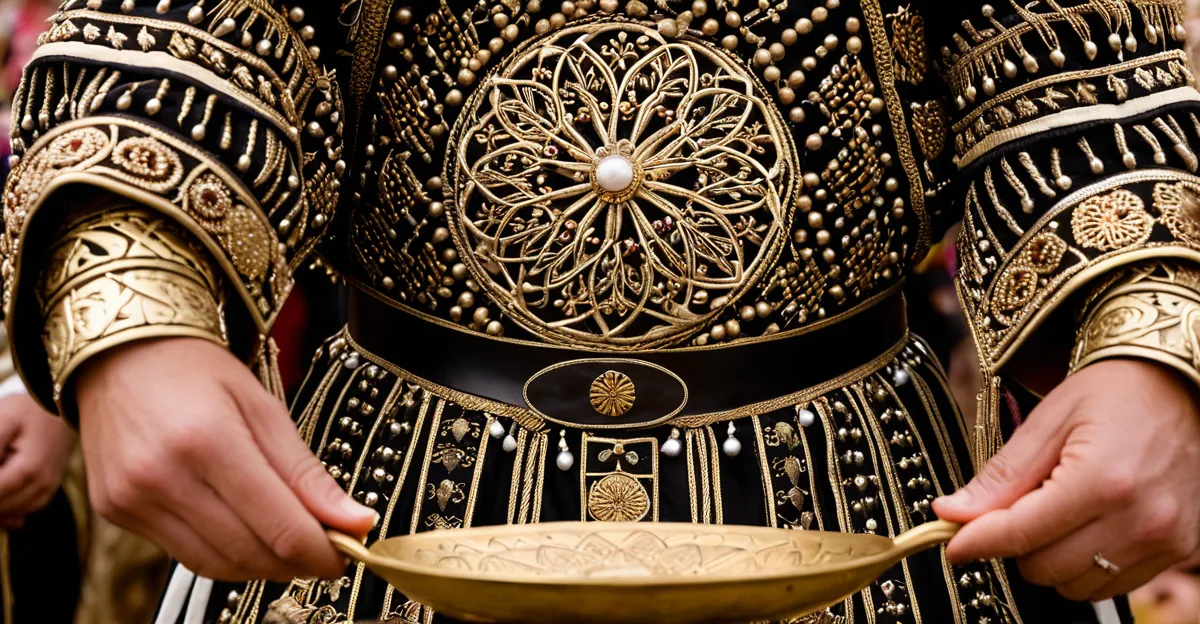UK Strategies for Using Cultural Festivals to Drive Tourism
Unlocking cultural celebrations to boost visitor numbers
The UK’s approach to boosting tourism growth prominently features leveraging cultural festivals as critical attractions. Both national and regional initiatives play a vital role. For example, government-backed programs dedicate funding and resources toward elevating festivals that showcase local heritage, art, music, and cuisine, ensuring they appeal not just to residents but to tourists from across the country and overseas.
Topic to read : How Can Tourists Navigate Lesser-Known Attractions in the UK?
Partnerships are central to these strategies. Tourism boards collaborate closely with local councils and festival organisers to align goals, share expertise, and coordinate logistics. This synergy enables events to scale effectively and deliver authentic cultural experiences that attract diverse audiences. Such alliances also facilitate resource pooling, amplifying promotional reach.
Targeted marketing campaigns are crafted to highlight cultural events strategically. These campaigns use data insights to segment audiences, tailoring messages for domestic and international travellers. Emphasizing unique aspects of festivals helps differentiate UK destinations. By integrating digital platforms and social media, campaigns increase visibility and engagement, enhancing tourism growth through sustained interest in cultural festivities.
Also read : What Are the Key Trends Shaping the Future of UK Tourism?
Together, these UK tourism strategies demonstrate a comprehensive, well-coordinated effort to harness cultural festivals as powerful drivers of visitor numbers and economic benefits.
Notable UK Festivals and Their Tourism Impact
Famous UK festivals like the Edinburgh Festival Fringe, Notting Hill Carnival, and Glastonbury consistently draw millions of visitors annually. These events showcase diverse cultural expressions, from theatre and music to vibrant parades, fueling substantial increases in tourism. For instance, Edinburgh’s festival attracts over 3 million visits, significantly boosting local hospitality and retail sectors.
Tourism statistics highlight sharp rises in festival attendance, with many remote or regional areas experiencing spikes in visitor numbers during these events. Notting Hill Carnival, renowned for its Caribbean cultural showcase, typically sees over a million attendees, greatly benefiting London’s economy, particularly in accommodation and transport.
The tourism impact extends beyond immediate economic gain, enhancing the global profile of host cities. Festivals contribute to regional and city brand recognition, placing locations like Glastonbury on the international map through media coverage and word of mouth. This branding effect can elevate future tourism even outside festival periods, as visitors return motivated by positive cultural impressions.
Overall, famous UK festivals serve as major tourism drivers, underpinning local economies and promoting cultural richness that attracts both domestic and international tourists year-round.
Economic Benefits of Cultural Festivals
Cultural festivals significantly boost the local economy by attracting visitors, which increases tourism revenue. Major events draw large crowds, resulting in heightened spending on accommodation, food, transport, and entertainment. This influx not only benefits hotels and restaurants but also smaller local businesses that see increased customer traffic during these periods.
Additionally, festivals create numerous job opportunities, both temporary and permanent. Event management, hospitality, retail, and transport sectors commonly hire additional staff to meet the sudden rise in demand. This job creation supports community livelihoods and promotes economic circulation within the area.
Funding and sponsorship linked to festival tourism play a critical role in sustaining these events. Local governments, private enterprises, and cultural organizations often invest significantly, recognizing the festivals’ potential to generate long-term economic growth. Sponsorships provide financial support while enhancing brand visibility, creating a win-win for business and culture.
In essence, cultural festivals serve as powerful engines for economic vitality. By boosting tourism revenue, creating jobs, and attracting sponsorship, they foster a vibrant and resilient local economy that benefits residents and visitors alike.
Social and Cultural Impacts
Festivals play a crucial role in promoting cultural diversity and preserving heritage by bringing together varied traditions and customs. This exchange fosters deeper understanding and appreciation among communities, enriching the social fabric. By showcasing different cultural expressions, festivals create dynamic platforms for cultural exchange, inviting participants to engage actively and experience new perspectives.
Community engagement is often enhanced through volunteer initiatives, where locals contribute their time and skills to support festival activities. These efforts not only strengthen community bonds but also empower residents by involving them directly in cultural celebrations. Volunteers become ambassadors, encouraging broader participation and ensuring events reflect shared values.
Moreover, festivals significantly strengthen local identity. They provide spaces where traditions are actively maintained and celebrated, reinforcing a sense of belonging and pride. This shared experience fosters social cohesion, as diverse groups unite around common goals and experiences. Such connections can help bridge differences, encouraging collaboration and mutual respect.
In summary, festivals serve as powerful tools for building inclusive communities by nurturing cultural heritage, encouraging community involvement, and enhancing social unity. These factors collectively contribute to a vibrant, engaged society.
Lessons and Actionable Insights for Other Destinations
Drawing from the UK’s experience, tourism development through cultural festivals hinges on strategic planning and community involvement. One key success factor is the integration of local heritage with global appeal, attracting both domestic and international visitors. This dual focus ensures authenticity while expanding reach.
Expert analysis often highlights the importance of clear objectives and stakeholder collaboration. For example, aligning local businesses, government bodies, and cultural groups fosters a cohesive festival ecosystem. This synergy improves infrastructure, marketing, and visitor experiences — critical components in effective global festival strategies.
Other countries can adapt these practices by tailoring festivals to showcase unique cultural assets while adopting flexible management approaches. Investing in digital promotion and data-driven insights further enhances visitor engagement and sustainability.
In summary, best practices for tourism development emphasize:
- Multifaceted promotion balancing tradition and innovation
- Inclusive planning involving diverse stakeholders
- Continuous evaluation to refine festival offerings
Adopting these strategies helps destinations leverage cultural festivals not only as celebrations but as powerful drivers of economic and cultural growth. This approach transforms events into annual tourism highlights, boosting visibility and local pride simultaneously.


